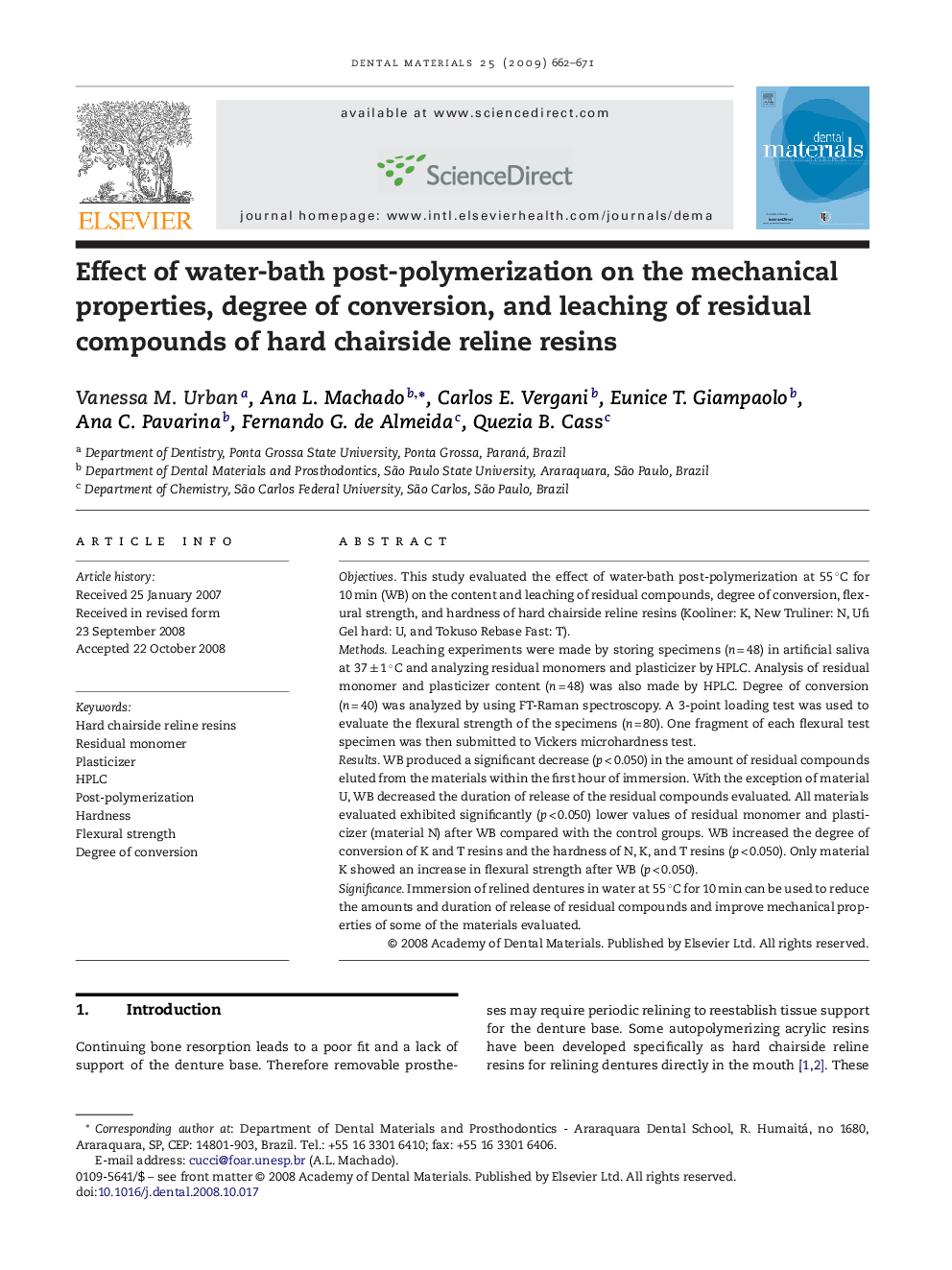| Article ID | Journal | Published Year | Pages | File Type |
|---|---|---|---|---|
| 1422583 | Dental Materials | 2009 | 10 Pages |
ObjectivesThis study evaluated the effect of water-bath post-polymerization at 55 °C for 10 min (WB) on the content and leaching of residual compounds, degree of conversion, flexural strength, and hardness of hard chairside reline resins (Kooliner: K, New Truliner: N, Ufi Gel hard: U, and Tokuso Rebase Fast: T).MethodsLeaching experiments were made by storing specimens (n = 48) in artificial saliva at 37 ± 1 °C and analyzing residual monomers and plasticizer by HPLC. Analysis of residual monomer and plasticizer content (n = 48) was also made by HPLC. Degree of conversion (n = 40) was analyzed by using FT-Raman spectroscopy. A 3-point loading test was used to evaluate the flexural strength of the specimens (n = 80). One fragment of each flexural test specimen was then submitted to Vickers microhardness test.ResultsWB produced a significant decrease (p < 0.050) in the amount of residual compounds eluted from the materials within the first hour of immersion. With the exception of material U, WB decreased the duration of release of the residual compounds evaluated. All materials evaluated exhibited significantly (p < 0.050) lower values of residual monomer and plasticizer (material N) after WB compared with the control groups. WB increased the degree of conversion of K and T resins and the hardness of N, K, and T resins (p < 0.050). Only material K showed an increase in flexural strength after WB (p < 0.050).SignificanceImmersion of relined dentures in water at 55 °C for 10 min can be used to reduce the amounts and duration of release of residual compounds and improve mechanical properties of some of the materials evaluated.
